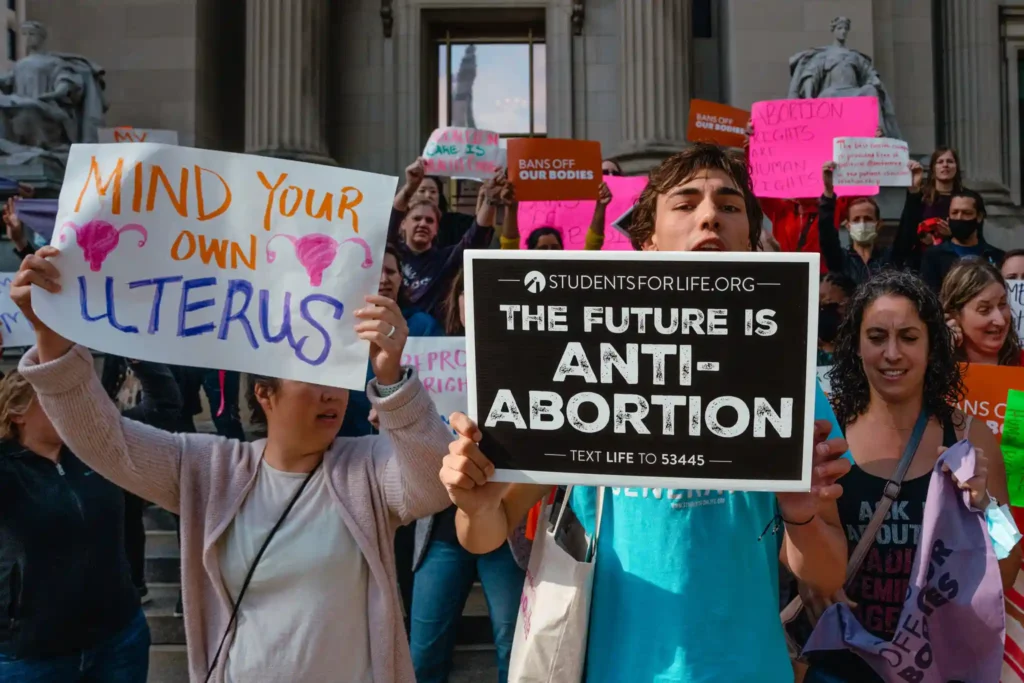In June 2007, the New Jersey Department of Health and Senior Services (NJDHSS) ordered the closure of the Alternatives abortion clinic in Atlantic City. The decision followed a damning 105-page investigative report that revealed gross violations of patient care, safety, and medical ethics.
By July 24, the Associated Press confirmed the facility remained closed after it failed to submit a plan to correct its violations. This failure was not surprising, given the sheer volume of infractions. From improper disposal of tissue to lack of trained staff, the violations highlighted systemic neglect and disregard for patient well-being.
This blog post provides a detailed, keyword-enriched analysis of the report, spotlighting 20 of the most alarming violations from just the first 30 pages. It is not a comprehensive list but offers a window into why regulators deemed this facility unsafe and unfit to operate.
Background: Why Was the Alternatives Abortion Clinic Closed?
The closure of the Alternatives abortion mill in Atlantic City, NJ, came after state inspectors conducted a full evaluation of its operations. The NJDHSS report revealed violations ranging from improper medical procedures to unsafe physical conditions within the facility.
Key issues included:
- No registered nurse coverage on multiple days of operation.
- Improper storage and handling of medications.
- Inadequate infection control and sterilization practices.
- Lack of patient privacy and dignity protections.
- Failure to perform and document physical examinations.
- Serious complications, including perforations, recorded in patient logs.
These findings paint a disturbing picture of a clinic that placed profits above patients, operating with disregard for state regulations and healthcare standards.
Top 20 Violations from the Investigative Report
Below are 20 violations directly cited in the investigative report. These are paraphrased for readability but remain faithful to the source material.
1. Improper Disposal of Human Tissue
The soiled utility room was equipped with a garbage disposal. Staff admitted the disposal was used for disposing of human tissue, raising biohazard and ethical concerns.
2. No Patient Privacy in Recovery Rooms
The recovery room lacked privacy curtains. Patients recovering from procedures were not shielded from others, violating basic patient dignity standards.
3. Absence of a Nurses’ Station
Shockingly, the facility operated without a nurses’ station, leaving patients without direct professional oversight during vulnerable post-procedure moments.
4. Unsanitary Recovery Lounge
The recovery lounge had no supervision and no convenient bathroom access. Patients had to cross other medical areas or waiting rooms to use restrooms.
5. No Secure Storage for Biologicals and Medications
Drugs were stored in an unlocked closet in the sterile corridor, violating requirements for secure medication handling.
6. Doctors Bringing Personal Medications
Two staff members admitted that physicians brought their own drugs for use during procedures. There was no written policy governing this dangerous practice.
7. Lack of Covered Patient Pick-up Area
Patients being discharged had no protected or private covered entrance, violating facility design standards for medical centers.
8. Inadequate Waiting Room Facilities
The waiting room lacked both a public telephone and water fountain, basic amenities required by state health codes.
9. No Private Interview Space
The clinic had no designated space for private patient interviews or counseling, compromising confidentiality.
10. Counseling Room Misused
The counseling room had been converted into a changing room, removing the intended function of pre- and post-procedure patient counseling.
11. HVAC and Ventilation Failures
Inspectors found no evidence that the heating and ventilation systems met requirements. Operating rooms lacked proof of positive pressure and minimum air exchanges, which are critical to preventing infections.
12. Bathrooms Without Ventilation
Clinic bathrooms had no natural or mechanical ventilation, a clear violation of sanitation codes.
13. Fire Hazard – Blocked Exits
Supplies blocked the third-floor corridor, impeding egress to the fire exit and creating a life-threatening hazard.
14. Unqualified Administration
The administrator role was given to employees lacking the required education and training. The “administrator” was previously a lab technician, not a qualified health administrator.
15. Ignorance of Patient Rights Policies
All 10 patient records reviewed showed administrators and staff were unaware of state-mandated patient rights policies.
16. Lack of Employee Training and Documentation
Seven out of seven employee files lacked evidence of required training, job descriptions, and competency assessments.
17. No Preoperative Physical Examinations
In 5 out of 10 surgical records, the preoperative physical exam forms were blank and unsigned by a physician. Others were incomplete, showing only vital signs without medical assessment.
18. Late-Term Abortions Beyond 16 Weeks
Ultrasonography reports showed 7 out of 13 patients were beyond 16 weeks pregnant, raising questions about compliance with abortion regulations and gestational limits.
19. Minimal Nursing Staff
The facility had only one registered nurse working part-time (Thursdays and Saturdays). On multiple operating days, no nurse was present at all.
20. High Rate of Complications
Clinic records showed 37 minor complications and at least 5 major complications between 2006 and 2007, including a documented uterine perforation.
Broader Implications of the NJ Alternatives Abortion Clinic Case
Patient Safety at Risk
The violations revealed systemic neglect of infection control, staff training, and medical oversight. Patients were left vulnerable to complications without proper monitoring.
Regulatory Oversight and Enforcement
This case illustrates the importance of strong regulatory oversight of abortion providers and medical facilities. Without enforcement, unlicensed or negligent practices can persist undetected.
Ethical Concerns in Abortion Practices
The misuse of counseling rooms, improper disposal of fetal remains, and disregard for gestational age limits highlight ethical lapses in the operation of the Alternatives abortion mill.
Public Trust in Healthcare
When clinics operate in such unsafe conditions, they undermine public confidence in reproductive healthcare services. Patients deserve access to safe, regulated medical environments.
Why This Case Still Matters
Although this report dates back to 2007, its lessons remain vital in today’s debates over abortion regulations, patient safety, and clinic oversight.
- For pro-choice advocates: It emphasizes the need to ensure safe, regulated facilities so patients are not endangered.
- For pro-life advocates: It reinforces concerns about the ethical practices of abortion providers.
- For policymakers: It shows the consequences of regulatory failure and the need for continuous inspections.
Conclusion
The NJ Department of Health’s investigative report on the Alternatives abortion clinic in Atlantic City is a stark reminder of what happens when patient safety, staff training, and ethical medical practices are ignored.
From improper drug storage to fire hazards and high complication rates, the violations exposed a facility that prioritized cutting corners over safeguarding women’s health. Its closure in June 2007 was both necessary and overdue.
As debates around abortion continue nationwide, this case underscores the critical need for transparency, accountability, and strict regulatory compliance in all healthcare facilities.




